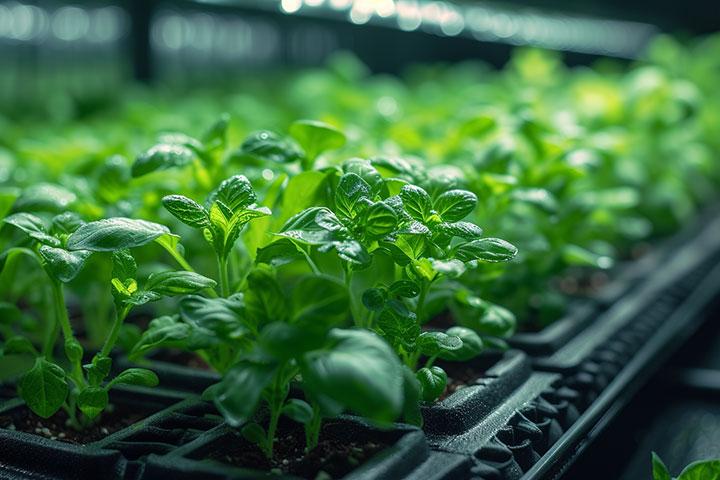What tips should you consider when buying cocopeat in bulk for hydroponic farming?
Coco peat is a key growing medium for hydroponic farming, valued for its ability to retain water, improve aeration, and support eco-friendly practices. For large-scale hydroponic businesses, buying cocopeat in bulk helps cut costs and ensures a steady supply. However, bulk purchases require careful checks to ensure the cocopeat meets your quality, compatibility, and efficiency needs. Here are some simple tips to help you choose the best bulk cocopeat for hydroponics.
Use Google to Your Advantage
Search on Google for terms like ‘cocopeat suppliers in India’ or ‘cocopeat exporters in India‘ to find exporter websites. Look for companies with a professional online presence, clear product details, and user-friendly websites. Reliable suppliers make it easy to contact them by providing forms and clear business information.
Align Cocopeat Specification to Your Hydroponics Requirements
Choosing the right cocopeat for your business when it comes to the type of crop revolves around your system specifications:
- Cabbages ( e.g. Lettuce, Spinach): Opt for cocopeat with fine grain particles that have great water holding capacity for the crop to constantly have moisture around it.
- Tomatoes and peppers: Use medium grain- because it is easier to retain moisture whilst being salty.
- Strawberries and cannabis: Use low-ec buffered coco peat and neutral ph for easier cells to absorb nutrients without root damage.
Real Example: Tamil nadu, a commercial strawberry farm increased its yield by around fifteen percent when it transitioned to grow bags with buffered coco peat due to enhanced root development and surface.

Test for Quality- Insist on High Standards
Why is the EC (electrical conductivity) level important when purchasing cocopeat?
Let us make one fact clear for all our readers, ‘compromise on quality is not an option’ in any of our business proceedings. Poor cocopeat can lead to inaccurate ratios of nutrients within the solution which can lead to low yields and wastage of resources. To make bulk purchases however, the following checks must be done:
- Check Electrical Conductivity (EC): Hydroponic use of cocopeat should not exceed 0.5 mS/cm as the salt content will build up overtime.
- Inspect for Contaminants: Excessive salt deposits, weed seeds and other insects should not be present in high quality cocopeat.
- Verify Uniform Granularity: Not all plants have the same roots, however uniformity in texture will make the roots grow equally in all directions.
Tip: Ask for laboratory test reports or other documentation to make sure that the product is suitable to your standards.
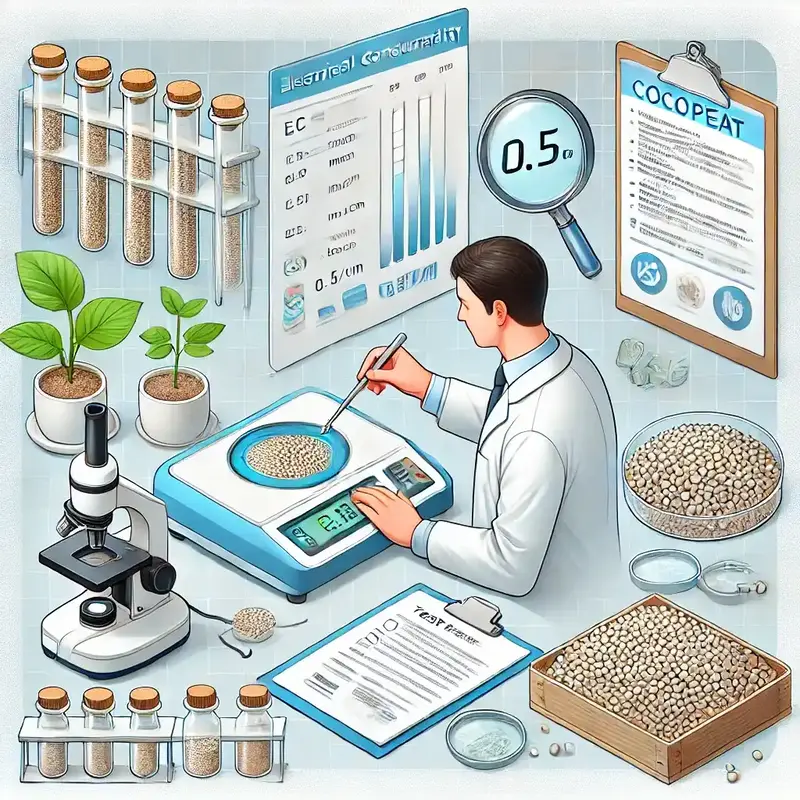
Ask for Product Samples Before Bulk Orders
How do you ensure bulk cocopeat is free from pests and contaminants?
It is recommended that you ask for a sample before placing in bulk orders. An adequate sample being used should be as stated below:
- Easily retain water within its roots without oversaturation.
- Maintain an even texture on the surface.
- Salt and EC values are low.
Pro Tip: Expand the sample by incorporating water with low EC, allow the roots to soak in it. Doing this will inform you how many times the sample will expand, an ideal cocopeat will expand between five to seven times the size it was compressed to.
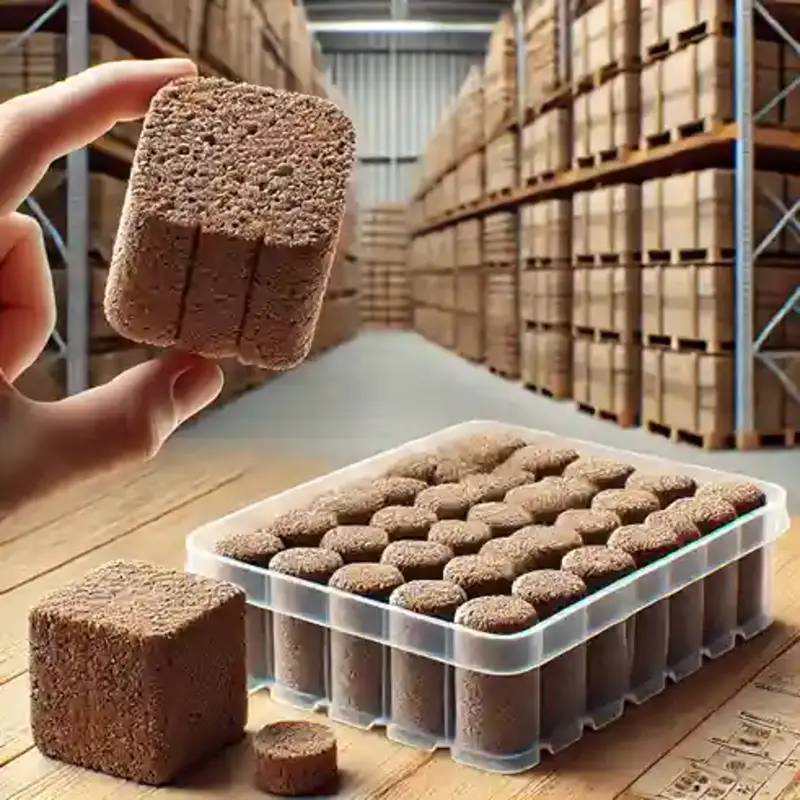
Select the Right Cocopeat Format for Your System
How do you choose the right cocopeat format for your hydroponic system?
When tunneling through hydroponic farming, it is important to acquire the required cocopeat structure to get the best results, for instance:
- Compressed Blocks: This structure is much more affordable as it takes up less space, great for bulk orders.
- Loose Cocopeat: This is directly usable cocopeat which requires no preparation.
You can take advantage of grow bags which accommodate crops such as cucumbers, strawberries and peppers as they are already filled and ready to be planted.
Case Study: A greenhouse based in Gujarat managed to effortlessly handle a consignment of compressed cocopeat blocks in order to expand them for a hydroponic lettuce grow system for a maximum of 10,000 plants. There was a logical aspect towards managing spacial requirements and water supply which ensured there was no difficulty in the operations.

Research and Verify Suppliers
Why is sourcing from a reliable supplier essential for bulk cocopeat purchases in hydroponic farming?
In order to succeed one needs to develop trusting relationship with suppliers. The following are a set of instructions, next section on how to verify suppliers:
- Check certifications awarded or held – it is best to be checking if the firms possess ISO, APEDA or organic certifications that is of international quality.
- Industry experience – attached with those having operations at hydroponic farms in the capacity of suppliers.
- Customer reviews – relevant and trustworthy reviews found on exports platforms, and LinkedIn or agricultural forums among other sites.
Example: People across the globe buy cocopeat sourced from Tamil Nadu which has specific low-EC and requirements that make them suitable for growing crops through the hydroponics process.
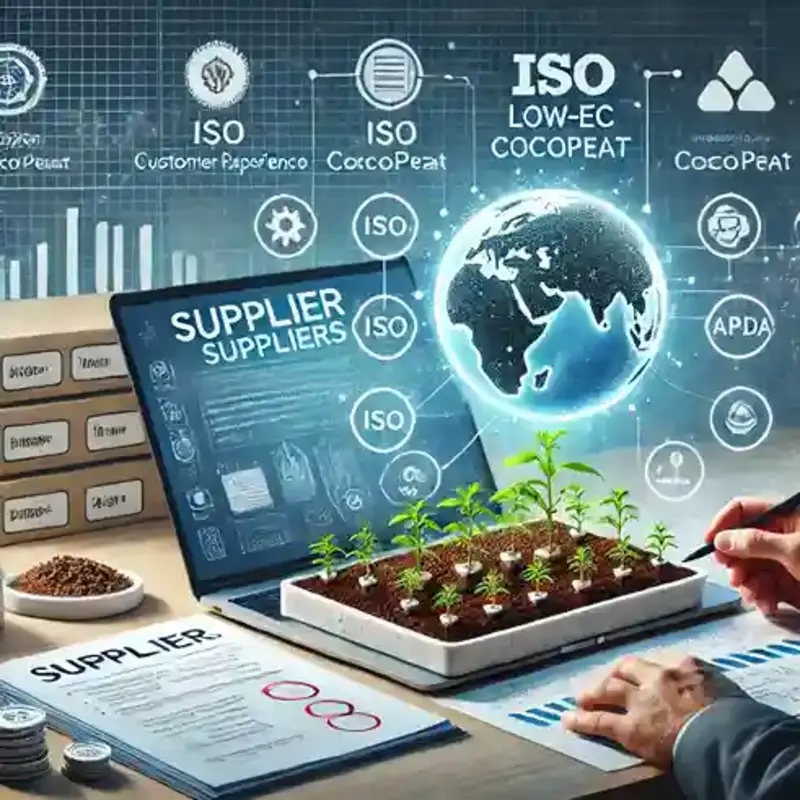
Visit Trade Fairs or Connect on LinkedIn
Directly get in touch with suppliers:
- Join agricultural trade fairs like yellow pages and meeting quality suppliers and their products in person also helps build trust in the partnership.
- Use LinkedIn to connect with reliable cocopeat exporters who are willing to connect with you by detailing their products and firms certifications on their profiles.
Tip: These events provide the necessary platform to extend your network which in terms helps you negotiate better offers and in building long term relationships with suppliers.
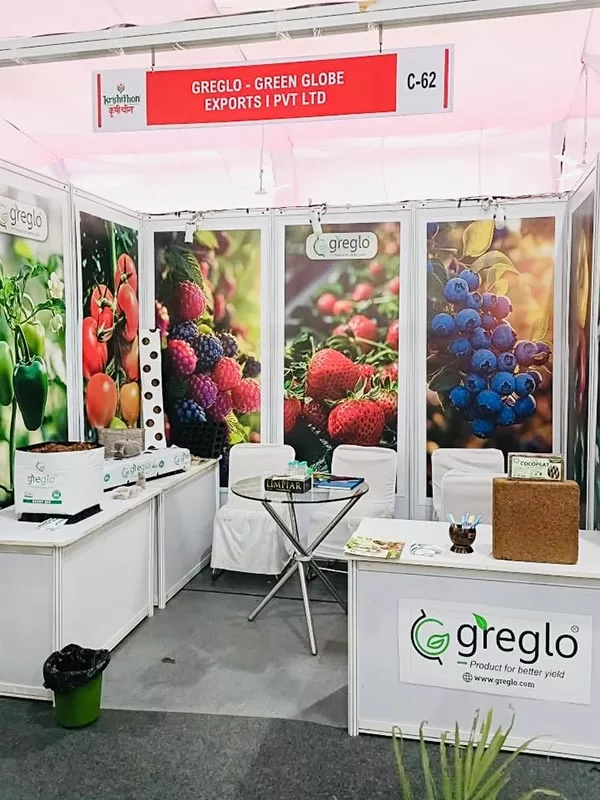
Emphasis on Sustainability
Sustainability is important in agriculture today. Look for suppliers who generally
- Provide organic certified cocopeat that is free from chemicals and for clean growing.
- Use green processing so as to reduce pollution.
- Meet the ISO standards for compliance on the quality of the product worldwide.
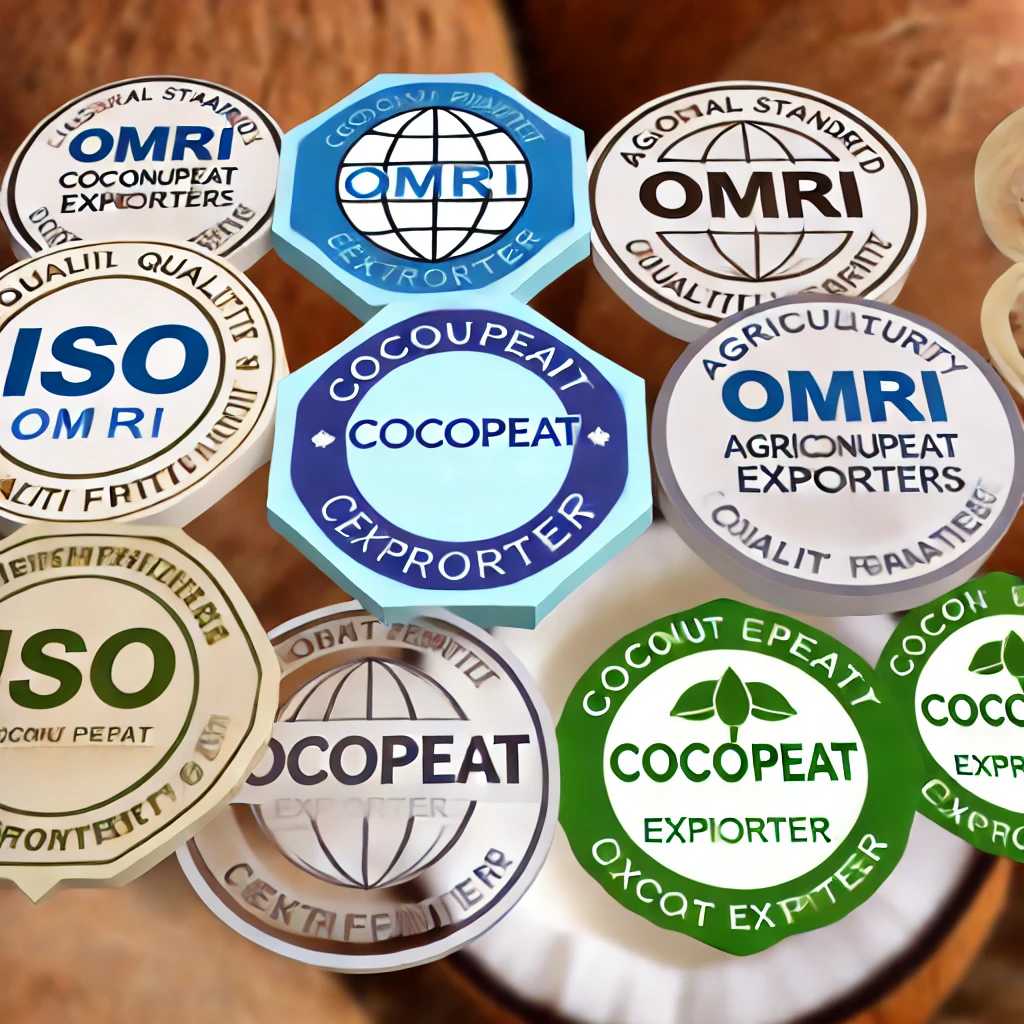
Storage and Hydration Planning
Buying in large quantities compels one to prepare well on the storage and the hydration conditions of cocopeat.
- Storage: This includes the drying of cocopeat in clean dry places to avoid contamination.
- Hydration: For expanding the blocks of cocopeat, low-EC water should be used to preserve the high purity.
- Space Management: When the volume of compressed cocopeat increases, it can increase to between 500% and 600% of its original volume. Therefore, enough space has to be made available.
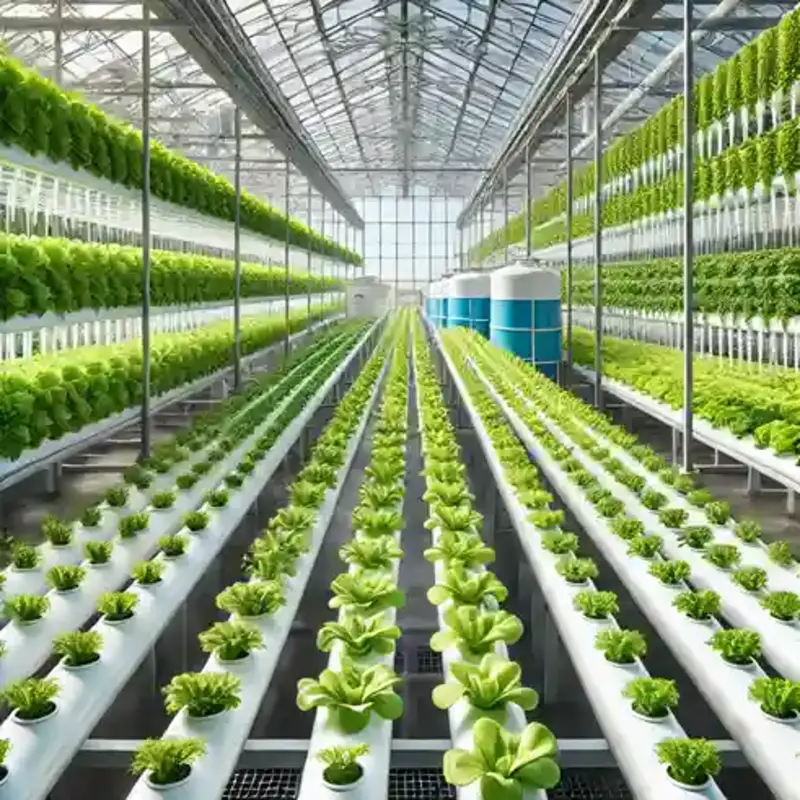
Leverage your Bulk Purchase for Better Pricing and Logistics
Bulk purchase enables one to strike a better deal concerning the price and logistics arrangements and services.
- Storage: This includes the drying of cocopeat in clean dry places to avoid contamination.
- Hydration: For expanding the blocks of cocopeat, low-EC water should be used to preserve the high purity.
- Space Management: When the volume of compressed cocopeat increases, it can increase to between 500% and 600% of its original volume. Therefore, enough space has to be made available.

Make Purchases that are in Tandem with Future Aspirations.
Cocopeat, after being sterilized, can be effectively used in the cultivation of hydroponics. This enhances the economy because it ensures that hydroponics is cost effective. Furthermore, after its use, it can also serve as a soil conditioner in farming.
Professional Opinions: “A significant number of our large clients reuse cocopeat for successive crop cycles reducing their costs by up to 30% but achieving good yields at the same time.”
Final Words
Bulk cocopeat purchases for hydroponic farming need to be undertaken after a thorough assessment of the quality, reliability of the supplier, and the compatibility with the system in place. By experimenting with samples with low EC signature and the proprietary form of coco peat, crops can be grown out in larger quantities and of higher quality. Do keep in mind that the quality of your hydroponic farm can only be maintained with quality of supplies that are sourced from reliable suppliers; either of the credentials don’t get sacrificed!

